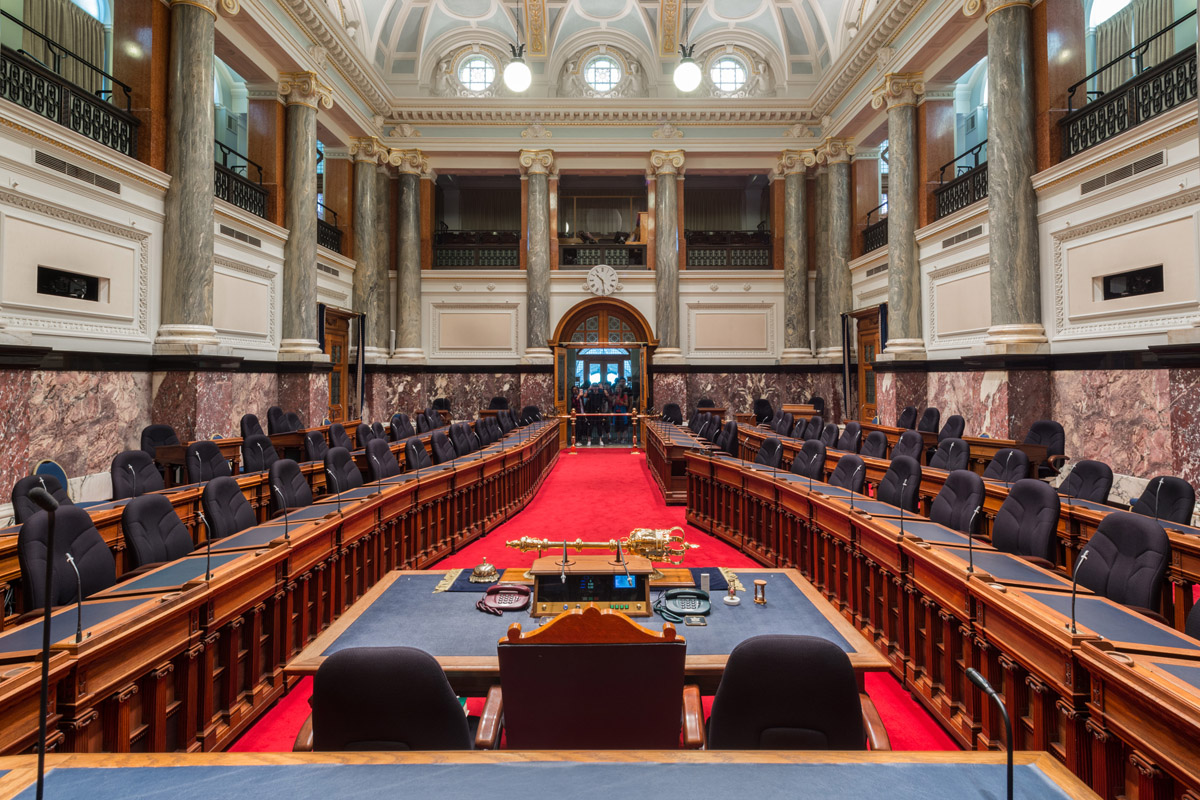In British Columbia’s Parliament Buildings, elected officials called Members of the Legislative Assembly (MLAs) meet to shape the future of the province.
When the Legislative Assembly is in session, an MLA's job is to represent the communities that elected them and collaborate with other MLAs to govern the province. They do so by researching, debating, and voting on all proposed laws (called bills) and government budgets. In doing so, MLAs consider the many different views and concerns of both those that elected them and of British Columbians more generally. When the Legislative Assembly is not in session, MLAs will often return to their communities to learn about the issues and concerns that their residents may have and work on their behalf to help. In addition to representing their constituents, MLAs work to fulfil the primary functions of the Legislative Assembly, which include:
However, differences in priorities and values on how to best govern British Columbia often result in MLAs running for office under different political parties (groups of people that share common political values) or as Independent Members. MLAs representing different political parties will compete with each other to govern the province. The party with the support of a majority of MLAs will become the government, while the remaining MLAs will form the opposition. This relationship between the government and the opposition shapes much of the work that MLAs do in the Assembly.

